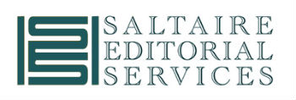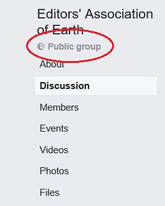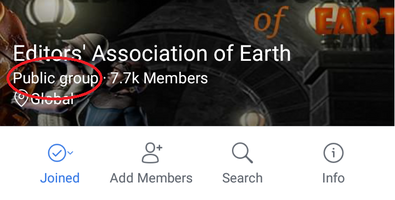 Proverbs are a rich source of advice on daily life. Here are six sayings that will resonate with freelance editors and proofreaders. 1. You can’t make a silk purse from a sow’s ear Editors and proofreaders might mutter this to themselves as they try to improve a piece of text that’s in a bad way. I’m not sure I agree with the sentiment, though. For a start, it’s not for me to judge that a piece of text is a ‘sow’s ear’. Writing isn’t an easy task, particularly if – as with some of my clients – English isn’t your first language. Also, my view is that improving an author’s written work is what editors and proofreaders are being paid for. Even with limited time or a limited budget, there are almost always things we can do to make improvements. A ‘silk purse’ might not always be achievable, but we can usually manage to create something that’s more presentable than a ‘sow’s ear’. 2. Many hands make light work Although editing and proofreading are often solitary activities, there are times when editorial professionals work together. For example, a couple of years ago I began subcontracting work to a trusted colleague, Laura Ripper, and I wrote about the experience on my blog. I’ve worked on other projects where the work has been shared between a group of editors in order to meet a tight deadline. Communication is the key to success in these situations. Everyone needs to know what’s happening and what’s expected of them. Any issues need to be highlighted and communicated as soon as possible. And an up-to-date house style is worth its weight in gold. 3. Too many cooks spoil the broth Many editors and proofreaders will have experienced this scenario, which is the opposite of the previous one. Perhaps several people working on the same project seem to be doing things in completely different ways. Or a document you’re working on has to incorporate the opinions of various different people who can’t seem to agree (‘editing by committee’). Or there are seven different versions of the same document in circulation. In these situations, the whole job seems to take twice as long and the end result may be far from ideal. There’s a need for some clear ground rules, including a house style, agreed timescales, and effective version control! 4. More haste, less speed As in all walks of life, the more you rush to finish a task, the less progress you will make. If you’re an editor or proofreader, this might mean missing errors that you should have spotted, failing to follow the brief properly, sending the wrong version of a file back to your client, or even sending the right file to the wrong client! It’s important to be realistic when accepting work or negotiating deadlines, and to study the brief you’re given. Using checklists and house styles can also help. It’s worth making every effort to get things right first time. As another familiar saying goes, ‘A stitch in time saves nine’. 5. A change is as good as a rest One of the things I enjoy about my work as a freelance editor and proofreader is the variety. I’d go so far as to say it’s the spice of life. Over the course of my freelance career I’ve worked on a whole range of material, from writing web copy and proofreading pet-food packaging to editing academic journal articles and high-profile reports for an EU agency. It’s even better when I have more than one project on the go at the same time. I enjoy using different skills, reading about a variety of topics, and working on material in different formats. A change of task, pace and subject matter keeps me on my toes. 6. You can’t teach an old dog new tricks Now this is one I’d definitely take issue with. It’s certainly the case that the older you get, the harder it is to learn new things. Also, the longer you’ve been doing a job, the greater the danger that you’ll become set in your ways. But our profession is constantly evolving, so as editors and proofreaders we need to keep up with changes in the industry, technological developments and potential new areas of work. Fortunately, there are many different ways of doing this. Being part of a professional organisation such as the Chartered Institute of Editing and Proofreading (CIEP) is a great way to keep up to date with new ideas and technology. This is particularly important for freelancers, many of whom don’t have the same access to professional support, training and skills development as in-house editorial workers do. Joining a professional organisation also offers the chance to develop valuable relationships with others in the field. Remember: birds of a feather flock together!
0 Comments
Are you a member of a Facebook group? If so, you’ll probably appreciate how great they are for sharing views, asking questions, discussing particular topics, and connecting with like-minded individuals. Facebook groups are usually set up to bring together people who share a common interest. That might be a hobby or leisure activity, a political viewpoint, a charitable cause, or perhaps a specific geographical area (the town in which you live, for instance). Such groups can also be used for professional purposes. As an editor, I belong to several editing-related Facebook groups, including Editors’ Association of Earth, Academic Editors and PerfectIt Users. The three types of Facebook groupThere are three types of Facebook group – public, closed and secret – and it’s worth making sure you’re aware of the different levels of privacy in each of these. Facebook provides a handy summary of the privacy settings for each of these groups. In this article I’ll be discussing public groups, as I think those raise the most concerns about privacy (or lack of it). How do you tell what type of group you’re joining?The type of group is specified under the group’s name. On a desktop you’ll see something like this – the little globe indicates ‘public’: If you’re viewing the group on your phone, it might look something like this: Privacy in public groups
Many of us take the time and trouble to protect our personal profile on Facebook – hiding our private information and limiting the audience for posts on our own timeline – but that won’t protect any posts or comments we contribute to a public group. What’s more, posts to a public group might even show up in our friends’ newsfeeds. Should you steer clear of public groups on Facebook?That would be a real shame, as many groups provide an excellent space for their members to share ideas and connect with one another. But there are things you can do to make the most of public groups without damaging your professional (or personal) reputation.
Enjoy public groups!Facebook groups are a valuable resource, and I wouldn’t want to put anyone off being part of them. But it’s important to realise that your posts and comments in a public group are just that – public. Keep this in mind and you’ve nothing to worry about!
|
Categories
All
Archives
December 2022
|
Read my Privacy policy




